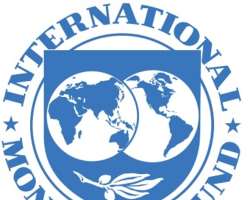IMF's Executive Board Completes the Third Review Under the ECF Arrangement for Burundi and Approves US$7.5 Million Disbursement

BUJUMBURA, Burundi, September 7, 2013/African Press Organization (APO)/ -- The Executive Board of the International Monetary Fund (IMF) today completed the third review of Burundi's performance under the program supported by the Extended Credit Facility (ECF) arrangement. Completion of the review will allow for the disbursement of an amount equivalent to SDR 5 million (about US$7.5 million), bringing disbursements under the arrangement to an amount equivalent to SDR 15 million (about US$22.6 million). In completing the review, the Board also approved a request for a modification of performance criteria for end-September and end-December 2013, and the continuous performance criterion on nonconcessional external debt contracted or guaranteed by the government or the Bank of the Republic of Burundi.
Burundi's three-year ECF arrangement was approved on January 27, 2012 (See Press Release No.12/35) with total access equivalent to SDR 30 million (about US$45.3 million).
At the conclusion of the Executive Board's discussions, Mr. Naoyuki Shinohara, Deputy Managing Director and Acting Chair, made the following statement:
“Burundi has made progress under the ECF-supported program amidst challenging socio-political and economic circumstances. Economic growth is expected to pick up, while inflation has been declining aided by moderating international food and fuel prices and tight monetary policy. The medium-term economic outlook remains difficult, with downside risks arising from uncertainties in the external environment, and the influx of refugees stemming from the conflict in Eastern Congo. Strong commitment to program policies and structural reforms remains critical going forward.
“Revenue slippages that emerged were addressed through corrective measures which formed the basis for a revised budget that was adopted by parliament. A recommitment to revenue mobilization notably by further strengthening tax administration and containing exemptions is critical to the success of the program. Efforts are also needed to enhance public financial management reforms.
“Debt sustainability remains the anchor for medium-term fiscal policy. Burundi continues to be at high risk of debt distress, and it will be important that any future borrowing relies mainly on grants and highly concessional loans. The ongoing finalization of a debt law governing the contraction of debt constitutes an important step towards strengthening the public debt management framework.
“Monetary policy should continue to focus on stabilizing inflation expectations. While underlying inflation has declined significantly in recent months, a potential fiscal deterioration financed by recourse to central bank financing could reignite inflation and reverse recent gains. Maintaining exchange rate flexibility will allow the economy to adjust to external shocks,” Ms. Shinohara stated.
